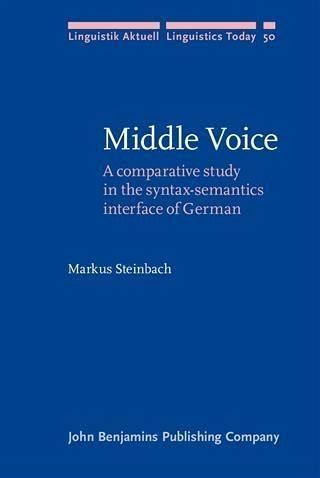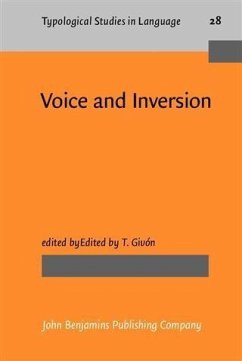
Middle Voice (eBook, PDF)
A comparative study in the syntax-semantics interface of German

PAYBACK Punkte
68 °P sammeln!
This book offers a completely new analysis of the syntax and semantics of transitive reflexive sentences in German, which is embedded in the major phenomenon of the middle voice in Indo-European languages. It integrates the interpretation of non-argument reflexives into a modified version of recent theories of binding. The ambiguity of the reflexive pronoun is derived at the interface between syntax and semantics and does not rely on additional lexical or syntactic rules of argument suppression and argument promotion. This shift towards the semantic interpretation of syntactic arguments enable...
This book offers a completely new analysis of the syntax and semantics of transitive reflexive sentences in German, which is embedded in the major phenomenon of the middle voice in Indo-European languages. It integrates the interpretation of non-argument reflexives into a modified version of recent theories of binding. The ambiguity of the reflexive pronoun is derived at the interface between syntax and semantics and does not rely on additional lexical or syntactic rules of argument suppression and argument promotion. This shift towards the semantic interpretation of syntactic arguments enables the author to offer a unified analysis of the middle, the anticausative and the reflexive interpretations. Furthermore, the crucial distinction between structural and oblique case forms is discussed and it is illustrated how specific properties of middle constructions such as adverbial modification or subject responsibility can be related to the generic interpretation of middle constructions.
Dieser Download kann aus rechtlichen Gründen nur mit Rechnungsadresse in A, B, BG, CY, CZ, D, DK, EW, E, FIN, F, GR, HR, H, IRL, I, LT, L, LR, M, NL, PL, P, R, S, SLO, SK ausgeliefert werden.













